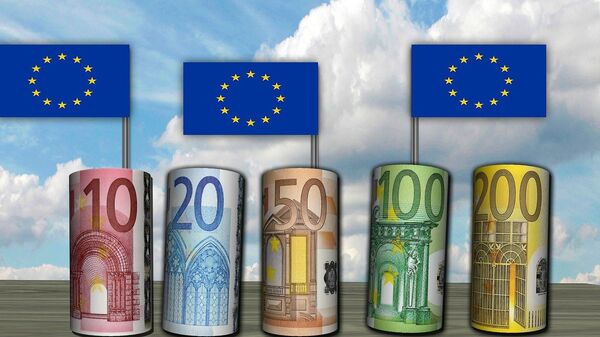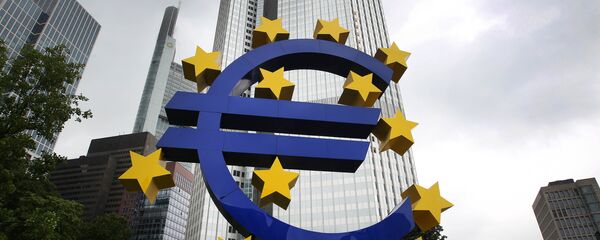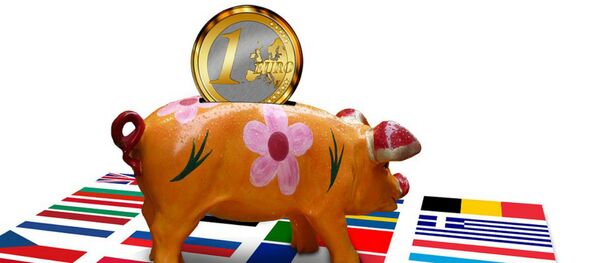On average, its monthly purchases currently amount to about €80 billion ($89 billion), an increase from €60 billion between March 2015 and March 2016. The ECB intends to keep carrying out the purchases until the end of March 2017, spending more than €1.5 trillion in the hope of steering inflation in the Eurozone closer to two percent.
According to Eurostat, in June the rate of inflation in the Eurozone was 0.1 percent, having spent four months in deflationary territory; the program's introduction in March 2015 had been sparked by a four month period of Eurozone deflation.
The ECB decided to pursue quantitative easing after central banks in the US, Japan and UK undertook similar policies.
Markus Kerber, Professor of Public Finance and Political Economy at the Technology University of Berlin, told Sputnik that the policy is taking the ECB beyond its mandate as a monetary institution.
"The ECB's mandate is to maintain price stability, which it interprets as an obligation to control annual inflation at two percent – this is rather contradictory, and determined on the basis of consumer prices," Kerber said.
"One of the ECB's hypotheses states that without a minimal rate of inflation of two percent, there can't be growth. Many economists, including myself, don't agree with this hypothesis, and in light of the huge volume of measures adopted by the ECB, there is a justifiable question about whether it has reached the limit of its powers."
"The ECB appears to have created a situation whereby its main goal – economic growth – has not been reached, despite the fact that countries which are unstable like Italy, France and Portugal are allowed to continue their policy of expanding the national debt."
"Now the debts are worth nothing. Look at countries like Portugal, Spain and Ireland. There are far from economic powerhouses, but they have negative interest rates. That is not a reflection of the real economy at all."
"As far as I can see, the ECB doesn't have a reason to buy corporate bonds. The reason is probably that the ECB, more specifically the European banking system, has reached the quantitative limit of buying sovereign bonds."
Kerber said that as well as distorting the economic differences between Eurozone countries, the policy, which has now turned to buying corporate debt, is about to distort the corporate debt market.
"The ECB's interventions distort competition in the corporate bond market. (It distorts) the competition between companies which are lucky enough to sell their bonds to the ECB, and those which are forced to continue offering their bonds on the capital market and pay higher dividends on them."
Kerber said the policy also puts companies which do not issue debt securities at a disadvantage.
"These measures are also discriminatory in relation to companies which are not represented on the financial markets. These companies can only finance themselves using bank loans."
Kerber is founder of the Europolis think tank, which has on several occasions unsuccessfully contested the ECB's monetary powers in Germany's Constitutional Court, and the European Court of Human Rights.
He says that the German government and Bundestag have the power to reject the ECB policy, but have refused to do so.
"I suggest the introduction of some kind of parallel currency. For countries with a positive trade balance, the euro currency is too cheap. Above all, it makes sense for the former Deutschmark zone countries to introduce a parallel currency."
"Of course, we could wait until the whole system collapses into chaos. But it is possible to act purposefully and create a system that overcomes the tension in the euro area in an evolutionary way."







